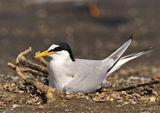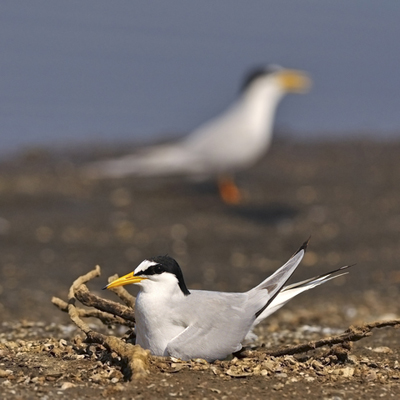Rare seabird under threat
Changing sea temperatures and weather patterns are affecting our little tern populations, the RSPB has warned


Exquisite houses, the beauty of Nature, and how to get the most from your life, straight to your inbox.
You are now subscribed
Your newsletter sign-up was successful
One of our rarest seabirds, the little tern, is under threat, the RSPB has warned. It's concerned that these elegant, diminutive birds- which return at this time of year from Africa to nest on beaches at fewer than 60 sites in the UK-are in real danger from changing sea temperatures and weather patterns.
Longstanding breeding colonies at South Gare, on the mouth of the River Tees on the Cleveland coast, and Donna Nook in Lincolnshire have disappeared due to habitat loss, predation and disturbance; only one nesting site remains in North Wales, at the Gronant dunes.

‘Little terns are very vulnerable to the impacts of climate change,' explains the RSPB's Susan Rendell- Read, who describes the dainty seabirds as being no heavier than a tennis ball. ‘They need undisturbed sand and shingle beaches to nest, with a plentiful supply of small fish just offshore. These beaches can be quickly altered by rising seas, making them unsuitable for nesting.'
A five-year partnership, including the RSPB, Natural England and the National Trust, has been set up to help our smallest tern in Wales by protecting and creating nest sites and raising awareness of their plight.
* Subscribe to Country Life and save
* Follow Country Life magazine on Twitter
Exquisite houses, the beauty of Nature, and how to get the most from your life, straight to your inbox.
An experienced journalist, Paula Minchin, Country Life's Managing & Features Editor, has worked for the magazine for 10 years — during which time she’s overseen two special issues guest-edited by His Majesty The King in 2013 and in 2018, and the bestselling 2022 edition masterminded by his wife, Queen Camilla. A gamekeeper’s daughter, Paula began her career as a crime reporter on The Sidmouth Herald in Devon, before becoming Pony Club & Young Rider Editor, then Racing Editor, at Horse & Hound. Paula lives in Somerset with her two working Labradors, Nimrod and Rocky.
